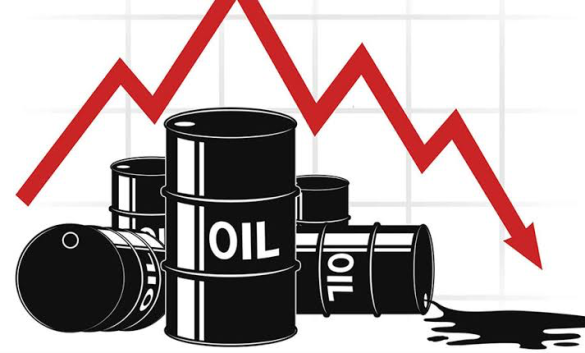Nigeria’s financial outlook for 2024 faces potential setbacks as Brent crude oil prices slipped below the country’s budget benchmark. On January 9, 2024, Brent crude traded at $77.02 per barrel, falling short of Nigeria’s anticipated oil price budget benchmark of $77.96 per barrel. This drop signifies an emerging revenue challenge for the nation’s economy, which is heavily reliant on oil exports.
The Nigerian National Petroleum Company Limited (NNPCL) had previously assured that the projections for crude oil production and the price benchmark were realistic and achievable. NNPCL Group Chief Executive Officer, Mr. Mele Kyari, during a session with the Senate Committee on Finance, expressed confidence in maintaining oil prices around the $77.96 mark.
Kyari’s optimism was based on market trends and expectations that oil prices would not plummet to $70 per barrel. However, the recent drop in oil prices raises concerns about the feasibility of these projections. On Monday, Brent crude experienced a 2.2% decline, a result of significant price cuts by Saudi Arabia and an increase in OPEC output. This decrease was further influenced by escalating geopolitical tensions in the Middle East.
The unexpected dip in oil prices poses a challenge to the Nigerian government’s financial planning. The budget for 2024, which hinges on oil revenue, now faces a potential shortfall, raising concerns about funding critical national projects and services. The reliance on oil revenue makes Nigeria particularly vulnerable to fluctuations in the global oil market.
In addition to the fall in Brent crude prices, Saudi Arabia’s decision to cut the February official selling price (OSP) of its Arab Light crude to Asia to the lowest level in 27 months has added to the market volatility. Analysts suggest that this move by Saudi Arabia is aimed at offsetting competition from non-OPEC supplies and maintaining market share within the cartel.
A Reuters survey indicated that OPEC oil output rose in December, with increases in Iraq, Angola, and Nigeria. This rise in output, ahead of further OPEC+ cuts in 2024 and Angola’s exit from OPEC, is set to impact January output and market share, potentially exacerbating the situation.
IG analyst Tony Sycamore reflected on the situation, stating, “If we were just to focus on the fundamentals, including higher inventories, higher OPEC/non-OPEC production, and a lower than expected Saudi OSP, it would be impossible to be anything other than bearish on crude oil.”
The current scenario underscores the volatility of relying heavily on oil revenue for national budgets. It highlights the need for Nigeria to diversify its economy and reduce its dependence on oil. The government and policymakers face the challenge of navigating these economic uncertainties while ensuring the nation’s financial stability and growth.
In conclusion, as Nigeria confronts the reality of oil prices falling below its budget benchmark, the country must brace for the economic implications. This development calls for strategic planning and potential adjustments to the national budget to mitigate the impact of fluctuating oil prices on the country’s economy.



